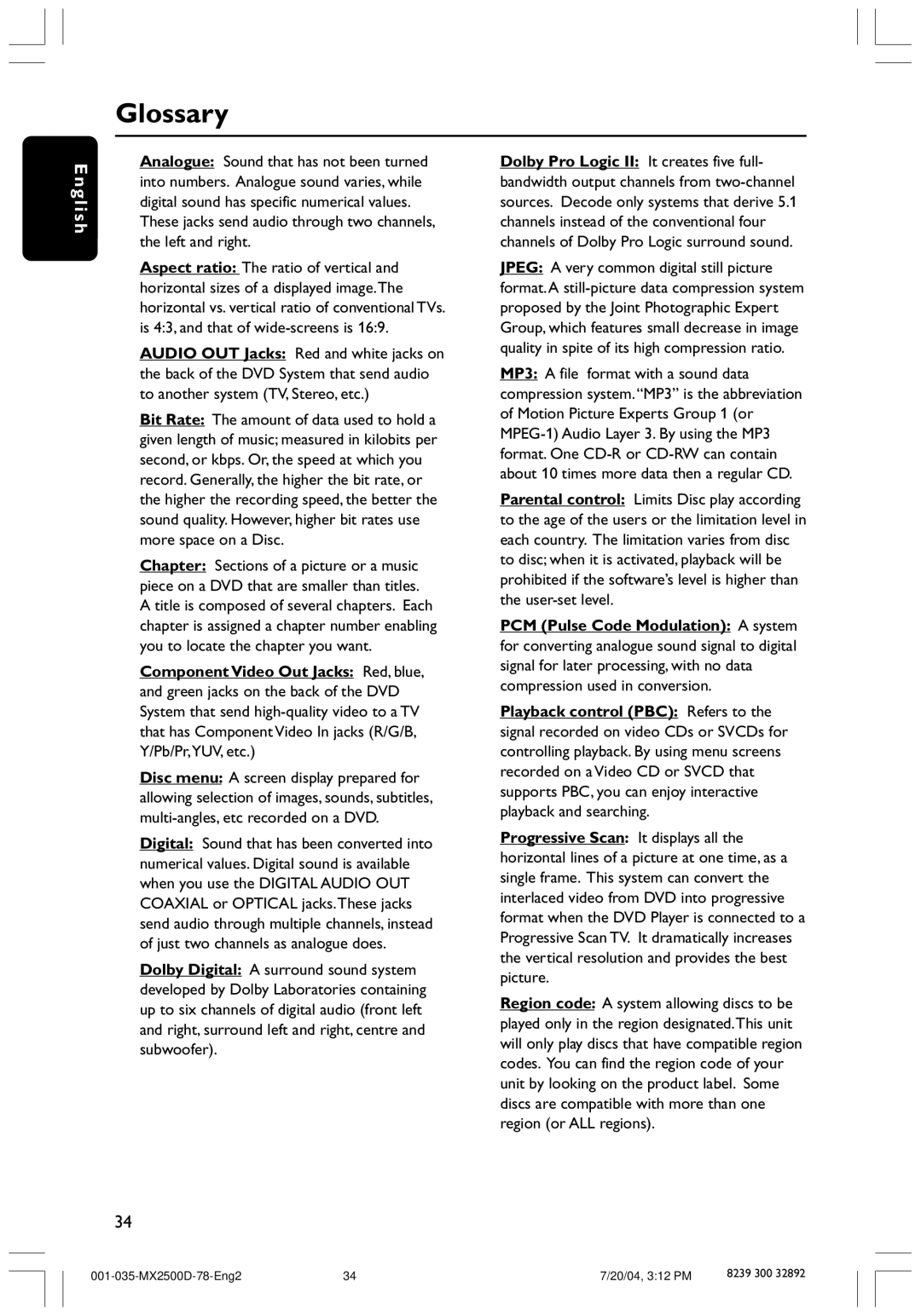
Glossary
E n g l i s h
Analogue: Sound that has not been turned into numbers. Analogue sound varies, while digital sound has specific numerical values.
These jacks send audio through two channels, the left and right.
Aspect ratio: The ratio of vertical and horizontal sizes of a displayed image.The horizontal vs. vertical ratio of conventional TVs. is 4:3, and that of
AUDIO OUT Jacks: Red and white jacks on the back of the DVD System that send audio to another system (TV, Stereo, etc.)
Bit Rate: The amount of data used to hold a given length of music; measured in kilobits per second, or kbps. Or, the speed at which you record. Generally, the higher the bit rate, or the higher the recording speed, the better the sound quality. However, higher bit rates use more space on a Disc.
Chapter: Sections of a picture or a music piece on a DVD that are smaller than titles. A title is composed of several chapters. Each chapter is assigned a chapter number enabling you to locate the chapter you want.
Component Video Out Jacks: Red, blue, and green jacks on the back of the DVD System that send
Disc menu: A screen display prepared for allowing selection of images, sounds, subtitles,
Digital: Sound that has been converted into numerical values. Digital sound is available when you use the DIGITAL AUDIO OUT COAXIAL or OPTICAL jacks.These jacks send audio through multiple channels, instead of just two channels as analogue does.
Dolby Digital: A surround sound system developed by Dolby Laboratories containing up to six channels of digital audio (front left and right, surround left and right, centre and subwoofer).
Dolby Pro Logic II: It creates five full- bandwidth output channels from
JPEG: A very common digital still picture format.A
MP3: A file format with a sound data compression system. “MP3” is the abbreviation of Motion Picture Experts Group 1 (or
Parental control: Limits Disc play according to the age of the users or the limitation level in each country. The limitation varies from disc to disc; when it is activated, playback will be prohibited if the software’s level is higher than the
PCM (Pulse Code Modulation): A system for converting analogue sound signal to digital signal for later processing, with no data compression used in conversion.
Playback control (PBC): Refers to the signal recorded on video CDs or SVCDs for controlling playback. By using menu screens recorded on a Video CD or SVCD that supports PBC, you can enjoy interactive playback and searching.
Progressive Scan: It displays all the horizontal lines of a picture at one time, as a single frame. This system can convert the interlaced video from DVD into progressive format when the DVD Player is connected to a Progressive Scan TV. It dramatically increases the vertical resolution and provides the best picture.
Region code: A system allowing discs to be played only in the region designated.This unit will only play discs that have compatible region codes. You can find the region code of your unit by looking on the product label. Some discs are compatible with more than one region (or ALL regions).
34
34 | 7/20/04, 3:12 PM | 8239 300 32892 |
